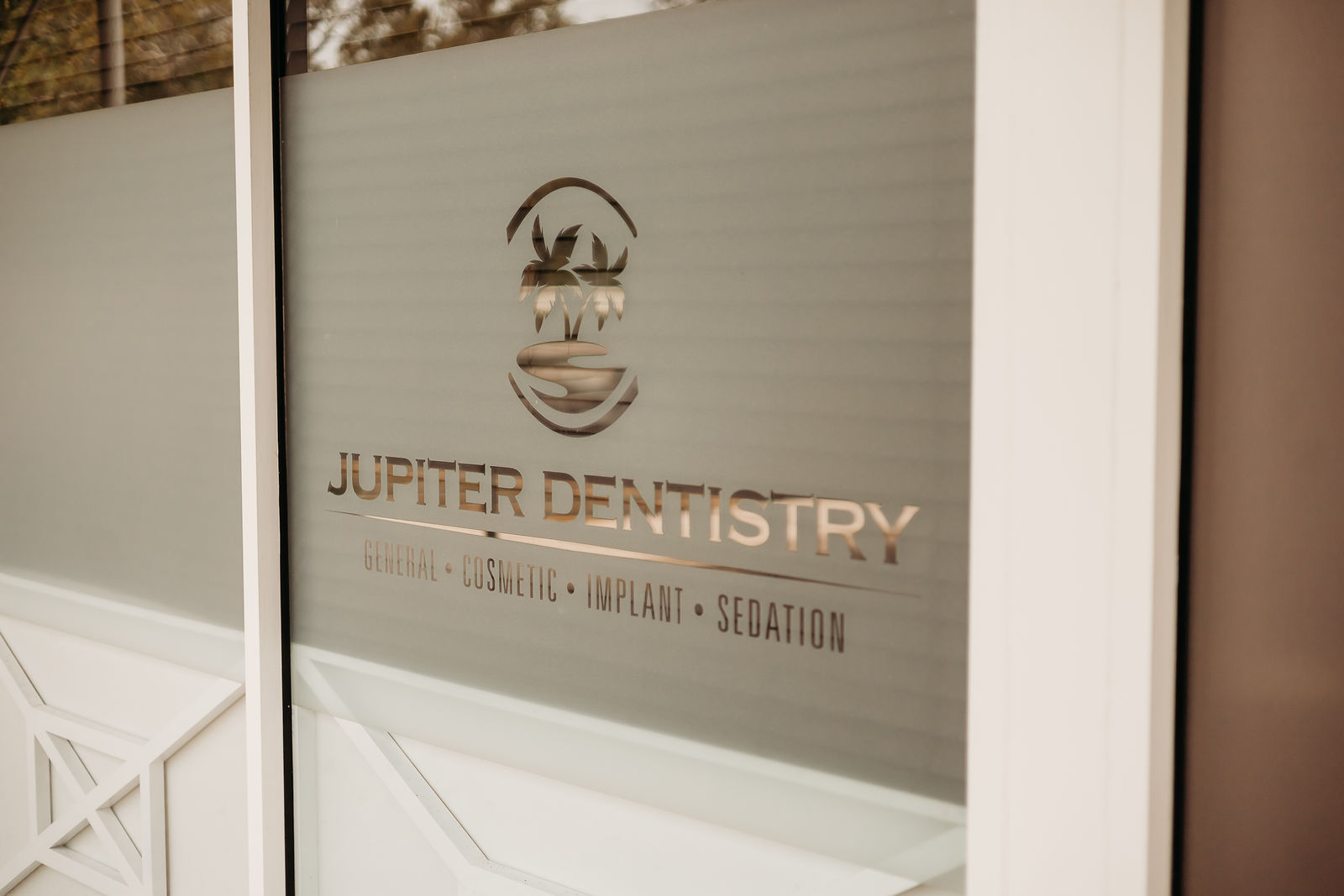Our Jupiter Dentist Can Help Get Your Oral Health Back On Track


Gum disease is a serious oral health issue that affects millions of people worldwide. If left untreated, gum disease can lead to tooth loss, gum recession, and other complications. Understanding the different stages of gum disease and seeking treatment early is key to maintaining a healthy smile. At Jupiter Dentistry, we specialize in diagnosing and treating gum disease in Jupiter, FL, ensuring our patients enjoy optimal oral health.
To schedule an appointment, contact our dentist in Jupiter today by calling (561) 575-5599.
The Different Stages of Periodontal Disease
Gingivitis (Early Stage)
The earliest stage of periodontal disease is gingivitis, which is a mild inflammation of the gums caused by plaque buildup around the teeth. Symptoms of gingivitis include:
- Bleeding gums
- Swollen gums
- Tender or sensitive gums
- Bad breath
- Receding gums
- Gum sensitivity
- Changes in gum texture
Fortunately, gingivitis can often be reversed with a professional dental cleaning, combined with improved at-home oral care. Regular cleanings help remove plaque and tartar, preventing the disease from progressing further.
If you have noticed signs of gingivitis, schedule an appointment with our Jupiter dentist as soon as possible. We can help prevent advanced gum disease.
Early Periodontitis
If gingivitis is left untreated, it can advance to early periodontitis. In this stage, the infection begins to damage the bone that supports the teeth. Pockets form between the gums and teeth, allowing more plaque and bacteria to accumulate, worsening the infection.
Symptoms of early periodontitis include:
- Persistent bad breath
- Bleeding gums
- Swollen or red gums
- Gum recession
- Tooth Sensitivity
- Loose teeth
- Formation of periodontal pockets
At this stage of gum disease, the bacteria have begun to penetrate the deeper layers of gum tissue and the surrounding bone itself, causing irreversible damage and bone loss.
To treat early periodontitis, our dentist may recommend scaling and root planing, which involves removing plaque and tartar buildup from beneath the gum line and smoothing the tooth root surfaces.
Moderate Periodontitis
In moderate periodontitis, the infection spreads deeper into the gums, causing significant bone loss around the teeth. The pockets between the gums and teeth become deeper, trapping bacteria and plaque, which accelerates tissue destruction.
Symptoms include:
- Deep gum pockets
- Gum swelling and redness
- Tooth migration or shifting
- Gum abscesses
- Chronic bad breath
- Changes in the bite
- Pain or discomfort while chewing
Treatment for moderate periodontitis typically involves a combination of scaling and root planing, antibiotic therapy, and possible surgical intervention. Dentists may recommend a bone graft or guided soft tissue regeneration procedure to help regenerate lost bone and gum tissue.
Advanced Periodontitis
Advanced periodontitis is the most severe stage of gum disease. At this point, there’s extensive bone loss, deep gum pockets, and significant tissue damage. Teeth may become loose or shift, and tooth loss is common if treatment is not provided promptly.
Symptoms of advanced periodontitis include:
- Severe pain
Tooth loss - Gum inflammation
- Severe gum recession
- Pus discharge and painful abscesses
- Swollen or bleeding gums
You must seek professional dental care if you’re experiencing the symptoms of advanced periodontal disease. Advanced periodontitis often requires surgical intervention, such as bone grafting, tissue regeneration, or pocket reduction surgery. Dental implants may also be needed to replace lost teeth.
- Severe pain
Gum Disease Is Preventable
You can prevent periodontal disease with proper oral hygiene and regular dental checkups. Here are some tips to help you maintain healthy gums and prevent the onset of gum disease:

- Brush Twice a Day: Use a soft-bristled toothbrush and fluoride toothpaste to brush your teeth at least twice a day. Be sure to brush along the gumline to remove plaque.
- Floss Daily: Flossing helps remove food particles and plaque between your teeth and gums, where your toothbrush may not reach.
- Use Mouthwash: An antibacterial mouthwash can help kill bacteria that cause gum disease.
- Regular Dental Visits: Visit our dentist in Jupiter at least twice a year for professional cleanings and checkups. Early detection of gum disease can prevent it from progressing to more serious stages.
- Quit Smoking: Smoking weakens your immune system, making it harder for your body to fight off gum infections. Quitting smoking can significantly reduce your risk of developing gum disease.
- Maintain a Healthy Diet: Eat a balanced diet rich in vitamins and minerals to support your gum health. Foods high in vitamin C, for example, help reduce inflammation and promote healing.
Frequently Asked Questions
Can gum disease be cured?
While more advanced stages of gum disease can’t be completely cured, they can be managed and controlled through proper oral hygiene practices and professional dental care. With early intervention, gingivitis can often be reversed, and the progression of gum disease can be slowed or stopped.
How long until gum disease is irreversible?
Gum disease becomes irreversible in the second and third stages. To avoid either moderate periodontitis or advanced periodontitis, maintain good oral hygiene and visit the dentist regularly.
How fast does periodontal disease progress?
Periodontal disease progresses gradually yet consistently. Within just four days, the plaque buildup can reach its peak, allowing visible signs of gingivitis to appear by day five. If gingivitis is left untreated, more advanced periodontal disease can manifest in a matter of weeks.
Are You at Risk for Gum Disease? Schedule a Consultation at Jupiter Dentistry!
Don’t wait until it’s too late to treat gum disease. The earlier you seek treatment, the better your chances of preventing serious complications, including tooth loss. At Jupiter Dentistry, we offer the most advanced treatments for gum disease in Jupiter, FL, ensuring our patients receive the best care possible.
Contact our top-rated dentist at (561) 575-5599 to schedule your appointment and take the first step toward achieving optimal oral health.


Complimentary Consultation
or 2nd Opinion
- Exam
- Full mouth X-rays
- Private Consultation with Doctor ($350 value)
- 2151 FL A1AAlt #1300,
Jupiter, FL 33477 - (561) 575-5599
- Monday: 8am - 5pm
- Tuesday: 8am - 5pm
- Wednesday: 8am - 5pm
- Thursday: 8am - 5pm
- Friday - Saturday - Sunday: Closed